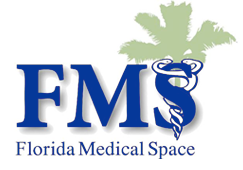
Florida’s embattled medical marijuana office continues wading through rulemaking—two years after Florida voters approved the system. But the industry is moving faster than regulators’ ability to govern it, leading to problems.
Last week a California-based medical marijuana company purchased a Florida one for $53 million. There have been a couple of these sales already. Yet only now is the Florida Department of Health’s Office of Compassionate Use coming up with rules to govern ownership transfers. The Office’s Director Christian Bax says the rule is aimed at quality control.
“And so we’re asking for the same information as we would ask another MMTC [Medical Marijuana Treatment Center] applicant,” he said.
The department wants new owners to go through a similar process as the original ones did, including background and financial checks. In the absence of firm rules on everything from how much licenses will cost, to ownership transfers, the Department is trying to put in temporary policies to fill the gap. These temporary rules are called variances.
The Office of Compassionate use has been under fire from all sides. It’s been accused of moving too slow, and earlier this year Florida lawmakers threatened to cut its funding. Some players, such as the Lockwood law firm which represents Medical Marijuana companies, want the department to speed up rule development.
“We have two major concerns with the proposed rule today. The first is that it lacks a turnaround time,” said the Lockwood firm’s Devon Nunneley. She wants to see changes that will get new products to patients faster.
“Any delay in the variance approval process really slows down our client. So we were hoping to see a rule that gives the office a certain timeline—something like 15 days—to approve or deny a variance request so that we could have some certainty in that regard.”
More recently a Leon County Circuit judge gave the state a week to make rules regarding smoke-able marijuana, after the same judge earlier found the state’s ban on smoke-ables unconstitutional. The deadline to make those rules was Monday. The state appealed the decision Friday. In a statement, a Health Department spokesman says patients have access to medical marijuana in different forms under the law and that its making progress in making medical marijuana available to the more than 117,000 Floridians who have licenses.
“And so we’re asking for the same information as we would ask another MMTC [Medical Marijuana Treatment Center] applicant,” he said.
The department wants new owners to go through a similar process as the original ones did, including background and financial checks. In the absence of firm rules on everything from how much licenses will cost, to ownership transfers, the Department is trying to put in temporary policies to fill the gap. These temporary rules are called variances.
The Office of Compassionate use has been under fire from all sides. It’s been accused of moving too slow, and earlier this year Florida lawmakers threatened to cut its funding. Some players, such as the Lockwood law firm which represents Medical Marijuana companies, want the department to speed up rule development.
“We have two major concerns with the proposed rule today. The first is that it lacks a turnaround time,” said the Lockwood firm’s Devon Nunneley. She wants to see changes that will get new products to patients faster.
“Any delay in the variance approval process really slows down our client. So we were hoping to see a rule that gives the office a certain timeline—something like 15 days—to approve or deny a variance request so that we could have some certainty in that regard.”
More recently a Leon County Circuit judge gave the state a week to make rules regarding smoke-able marijuana, after the same judge earlier found the state’s ban on smoke-ables unconstitutional. The deadline to make those rules was Monday. The state appealed the decision Friday. In a statement, a Health Department spokesman says patients have access to medical marijuana in different forms under the law and that its making progress in making medical marijuana available to the more than 117,000 Floridians who have licenses.
The Office of Compassionate use has been under fire from all sides. It’s been accused of moving too slow, and earlier this year Florida lawmakers threatened to cut its funding. Some players, such as the Lockwood law firm which represents Medical Marijuana companies, want the department to speed up rule development.
“We have two major concerns with the proposed rule today. The first is that it lacks a turnaround time,” said the Lockwood firm’s Devon Nunneley. She wants to see changes that will get new products to patients faster.
“Any delay in the variance approval process really slows down our client. So we were hoping to see a rule that gives the office a certain timeline—something like 15 days—to approve or deny a variance request so that we could have some certainty in that regard.”
More recently a Leon County Circuit judge gave the state a week to make rules regarding smoke-able marijuana, after the same judge earlier found the state’s ban on smoke-ables unconstitutional. The deadline to make those rules was Monday. The state appealed the decision Friday. In a statement, a Health Department spokesman says patients have access to medical marijuana in different forms under the law and that its making progress in making medical marijuana available to the more than 117,000 Floridians who have licenses.
“Any delay in the variance approval process really slows down our client. So we were hoping to see a rule that gives the office a certain timeline—something like 15 days—to approve or deny a variance request so that we could have some certainty in that regard.”
More recently a Leon County Circuit judge gave the state a week to make rules regarding smoke-able marijuana, after the same judge earlier found the state’s ban on smoke-ables unconstitutional. The deadline to make those rules was Monday. The state appealed the decision Friday. In a statement, a Health Department spokesman says patients have access to medical marijuana in different forms under the law and that its making progress in making medical marijuana available to the more than 117,000 Floridians who have licenses.
Source: Florida Trend
